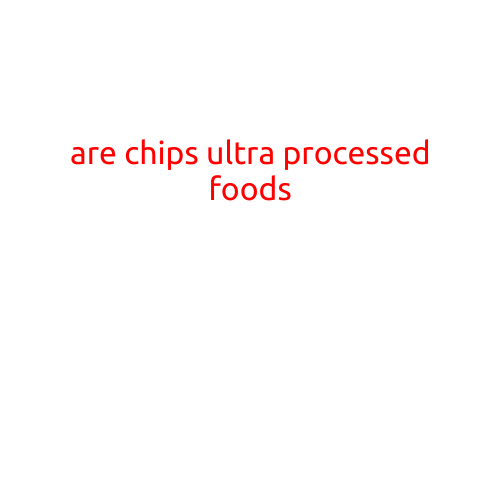
“The Unhealthy Truth About Ultra Processed Foods: Why They’re Bad for Your Body and Mind”
The modern food landscape is dominated by ultra-processed foods, which have become a staple in many of our diets. These foods are highly convenient, affordable, and widely available, making them a popular choice for busy lifestyles. However, beneath their appealing appearance and tantalizing flavors, ultra-processed foods hide a darker reality. In this article, we’ll explore the unhealthful effects of ultra-processed foods and why they’re bad for your body and mind.
What are Ultra Processed Foods?
Ultra-processed foods are products that have been heavily transformed from their natural state through various processing techniques, such as extrusion, frying, or hydrolysis. These foods often contain a cocktail of additives, preservatives, and coloring agents, which are designed to enhance their appearance, taste, and shelf life. Examples of ultra-processed foods include frozen meals, sugary snacks, instant noodles, and processed meats.
The Adverse Health Effects of Ultra Processed Foods
Research has consistently shown that consuming ultra-processed foods is associated with a range of negative health outcomes, including:
- Weight Gain and Obesity: Ultra-processed foods are often high in calories, sugar, and unhealthy fats, which can lead to weight gain and obesity.
- Increased Risk of Chronic Diseases: Consuming ultra-processed foods has been linked to a higher risk of chronic diseases, such as type 2 diabetes, heart disease, and certain types of cancer.
- Poor Gut Health: The added sugars, preservatives, and artificial ingredients in ultra-processed foods can disrupt the balance of gut bacteria, leading to digestive issues and impaired immune function.
- Mood Disorders and Cognitive Impairment: The high levels of processed sugars and artificial additives in ultra-processed foods may contribute to mood disorders, such as depression and anxiety, as well as cognitive impairment.
Why Ultra Processed Foods are Bad for Your Mind
The negative impact of ultra-processed foods on mental health is often overlooked. However, research suggests that the additives and preservatives in these foods can:
- Disrupt Neurotransmitters: Consuming ultra-processed foods can alter the balance of neurotransmitters, such as serotonin and dopamine, which regulate mood, appetite, and sleep.
- Increase Stress and Anxiety: The high levels of added sugars and artificial additives in ultra-processed foods can trigger feelings of stress and anxiety, exacerbating conditions like depression and anxiety disorders.
- Lead to Addiction: The combination of sugar, salt, and fat in ultra-processed foods can activate the brain’s reward system, leading to addiction and overconsumption.
Breaking the Cycle of Ultra-Processed Foods
The good news is that breaking the cycle of ultra-processed foods is easier than you think. Here are some simple tips to help you transition to a healthier diet:
- Focus on Whole Foods: Prioritize whole, unprocessed foods, such as fruits, vegetables, whole grains, lean proteins, and healthy fats.
- Read Labels: Be mindful of food labels and avoid products with long lists of additives, preservatives, and coloring agents.
- Cook at Home: Cooking at home using fresh ingredients allows you to control the amount and type of additives in your food.
- Limit Convenience Foods: Try to limit your consumption of convenience foods, such as frozen meals and sugary snacks, which are often high in ultra-processed ingredients.
Conclusion
Ultra-processed foods may seem convenient and appealing, but the evidence is clear: they’re bad for your body and mind. By understanding the negative effects of ultra-processed foods and making simple changes to your diet, you can take control of your health and wellbeing. Remember, a balanced diet rich in whole, unprocessed foods is the key to a happier, healthier you.





